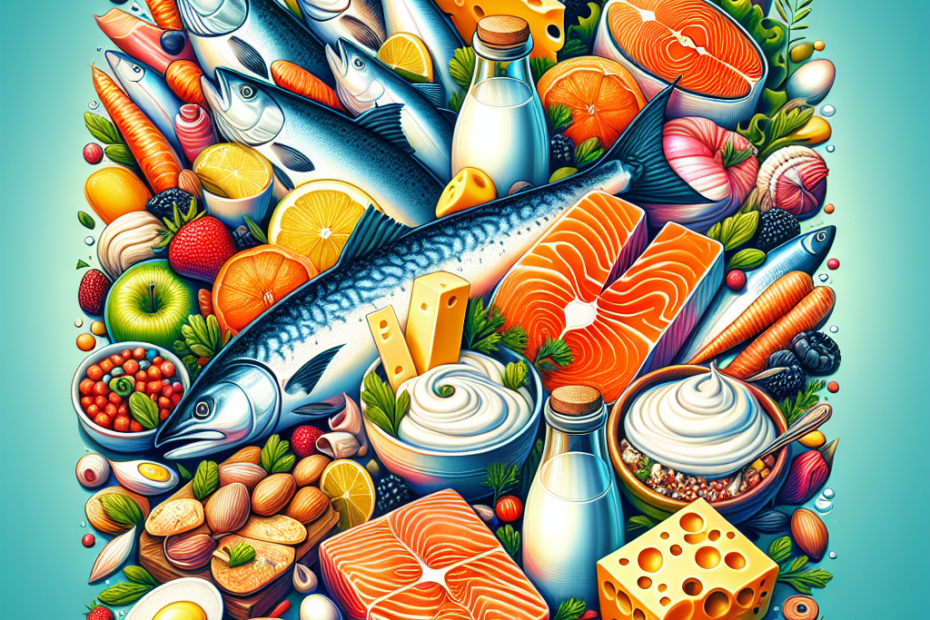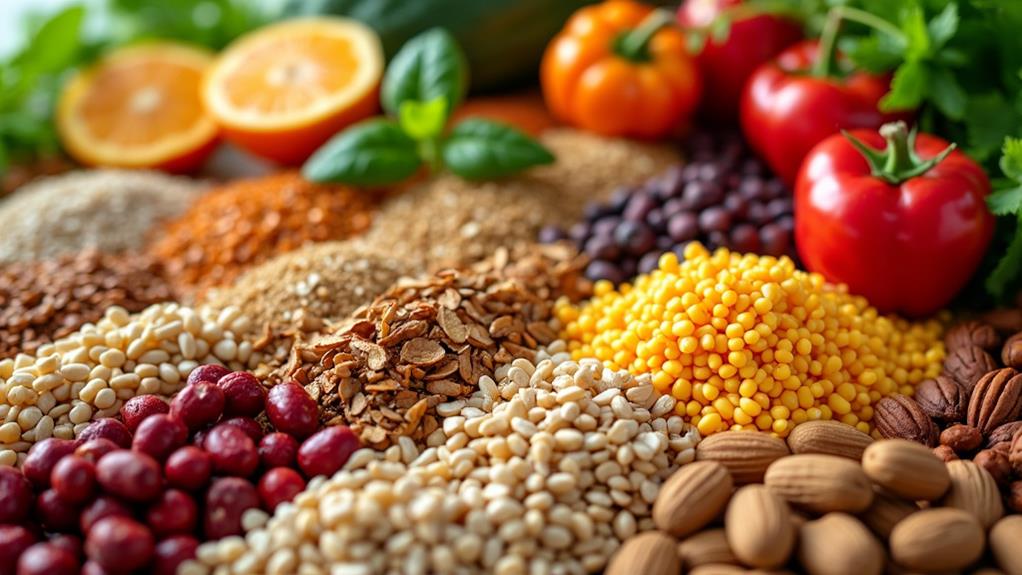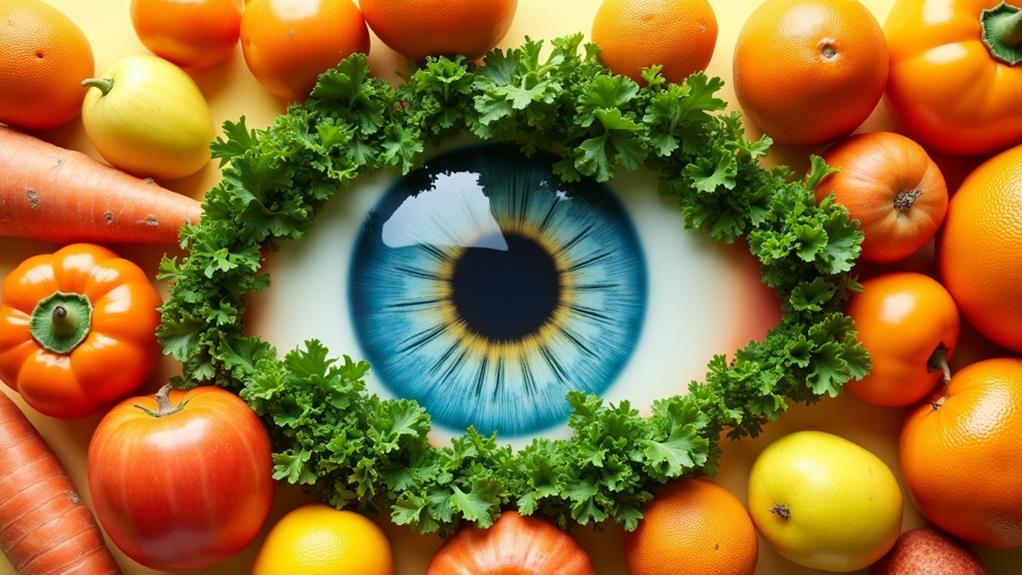







Are you looking to boost your vitamin D intake but don’t know where to start? Look no further! In this article, we will explore the various foods that are packed with this essential nutrient, allowing you to make informed choices about what to include in your diet. From fatty fish to fortified dairy products, we’ve got you covered with a comprehensive list of vitamin D-rich foods that will leave you feeling healthy and energized. So get ready to discover a world of delicious options that can help support your overall well-being.
Fish
Salmon
Salmon is a delicious and nutritious fish that is well-known for its high vitamin D content. Just a single serving of salmon can provide you with a significant amount of this essential vitamin. In fact, a 3.5-ounce serving of salmon can contain around 988 IU (International Units) of vitamin D, which is more than the recommended daily intake for most people. So, if you’re looking for a natural source of vitamin D, including salmon in your diet is a great choice.
Mackerel
Mackerel is another type of oily fish that is packed with vitamin D. This fatty fish is not only tasty but also offers numerous health benefits, thanks to its vitamin D content. A 3.5-ounce serving of cooked mackerel contains approximately 360 IU of vitamin D. Incorporating this fish into your diet can help boost your vitamin D levels and promote overall well-being.
Sardines
Sardines may be small in size, but they pack a powerful punch of vitamin D. These little fish are not only convenient and affordable but also a great source of essential nutrients, including vitamin D. Just 3.5 ounces of canned sardines can provide you with about 270 IU of vitamin D. So, whether you enjoy them on toast, in salads, or straight from the can, sardines are a fantastic way to increase your vitamin D intake.
Tuna
Tuna is a versatile fish that is widely consumed across the globe. Besides being a good source of protein, tuna also contains a decent amount of vitamin D. A 3.5-ounce serving of fresh tuna can provide around 236 IU of vitamin D. However, it’s important to note that the vitamin D content can vary depending on the type of tuna and how it’s prepared. Nonetheless, adding tuna to your diet can contribute to your daily vitamin D needs.
Trout
Trout is a freshwater fish that deserves a spot on your plate due to its vitamin D content. This fish not only adds variety to your meals but also offers health benefits. A 3.5-ounce serving of cooked trout provides approximately 600 IU of vitamin D. Grilling or baking trout is a popular cooking method that helps retain its nutrients. By including trout in your diet, you can ensure you’re getting a good dose of vitamin D.
Dairy Products
Milk
Milk is a staple in many households, and it turns out, it’s not just a great source of calcium. Milk is also fortified with vitamin D, making it an excellent choice to maintain adequate levels of this vital nutrient. One cup of milk typically contains around 115-130 IU of vitamin D, depending on the brand and whether it’s whole, reduced-fat, or skim milk. So, starting your day with a glass of milk can give you the energy you need and contribute to your daily intake of vitamin D.
Cheese
Cheese lovers, rejoice! Cheese, particularly certain types, can be a decent source of vitamin D. While the vitamin D content may vary depending on the variety and processing method, a 1-ounce serving of regular cheese can contain around 6 IU of vitamin D. Considering the versatility of cheese in cooking and snacking, incorporating it into your meals can be an enjoyable way to boost your vitamin D levels.
Yogurt
Yogurt is a popular dairy product that offers a range of health benefits, including contributing to your daily vitamin D intake. Just like milk, many brands of yogurt are fortified with vitamin D. Therefore, enjoying a cup of yogurt can provide you with approximately 80-100 IU of vitamin D. Whether you prefer it plain or flavored, yogurt is a delicious and nutritious way to support your body’s vitamin D needs.
Eggs
Eggs are a breakfast favorite and a versatile ingredient in various dishes. Not only are they an excellent source of protein, but eggs also contain small amounts of vitamin D. Specifically, one large egg typically provides around 41 IU of vitamin D. While eggs may not be among the highest sources of vitamin D, they still contribute to your daily intake. So, make sure to incorporate eggs into your diet for a well-rounded nutritional profile.
Mushrooms
Shiitake
Shiitake mushrooms have gained popularity not only for their rich umami flavor but also for their potential health benefits. When exposed to sunlight, shiitake mushrooms can naturally synthesize vitamin D. As a result, these fantastic fungi can be a valuable source of this essential vitamin. The exact amount of vitamin D in shiitake mushrooms varies depending on factors like exposure to sunlight and cultivation methods. Nonetheless, including shiitake mushrooms in your meals can be a tasty way to increase your vitamin D intake.
Maitake
Maitake mushrooms, also known as “hen of the woods,” are another type of mushroom that can contribute to your vitamin D levels. While the vitamin D content of maitake mushrooms is lower compared to some other varieties, they still contain this essential nutrient. Incorporating maitake mushrooms into your diet as part of a well-balanced meal can be a flavorful way to support your body’s vitamin D needs.
Morel
Morel mushrooms are highly prized in the culinary world for their unique flavor and texture. Interestingly, these tasty mushrooms also offer a modest amount of vitamin D. Although the exact vitamin D content may vary, incorporating morel mushrooms into your dishes can provide you with some of this vital nutrient. So, next time you come across morel mushrooms, don’t miss the opportunity to enjoy their taste while reaping the benefits of their vitamin D content.
Chanterelle
Chanterelle mushrooms are well-regarded for their distinct fruity aroma and golden color. Alongside their delicious taste, these mushrooms contain vitamin D. The exact amount may vary, but including chanterelle mushrooms in your meals can be a delightful way to add some vitamin D to your diet. So, whether you incorporate them into pasta dishes or sauté them as a side, chanterelle mushrooms offer both flavor and nutritional benefits.
Fortified Foods
Cereal
Cereal is a common breakfast choice for many people, and certain types are often fortified with essential nutrients, including vitamin D. Fortified cereals can provide you with a quick and convenient way to boost your vitamin D levels in the morning. The exact vitamin D content varies depending on the brand and type of cereal, but you can typically find options that contain around 40-50 IU of vitamin D per serving. So, starting your day with a bowl of fortified cereal can help set you on the right track for meeting your daily vitamin D needs.
Orange Juice
Orange juice is a popular beverage enjoyed by people of all ages. Fortunately, some brands of orange juice are enriched with vitamin D, making it an even better choice. A typical glass of fortified orange juice can contain approximately 100 IU of vitamin D. So, whether you enjoy it as part of your breakfast or as a refreshing drink during the day, fortified orange juice can contribute to your daily vitamin D intake.
Soy Milk
Soy milk, a plant-based alternative to cow’s milk, is a nutritious option for individuals with lactose intolerance or those following a vegan diet. Just like cow’s milk, some brands of soy milk are fortified with vitamin D, ensuring you don’t miss out on this essential nutrient. The amount of vitamin D in fortified soy milk can vary, but typically, one cup provides around 100 IU of vitamin D. So, whether you drink it on its own or use it in your favorite recipes, soy milk can be a valuable source of vitamin D.
Plant-Based Milk
Plant-based milk options, such as almond milk, coconut milk, and oat milk, have become increasingly popular among those with dietary restrictions or personal preferences. Thankfully, many varieties of plant-based milk are now fortified with vitamin D to provide a complete nutritional profile. The vitamin D content of fortified plant-based milk can range from 75 to 100 IU per cup, depending on the brand and type of milk. So, whether you enjoy plant-based milk in your morning coffee or use it in your breakfast cereal, you can benefit from its added vitamin D.
Liver
Beef Liver
Beef liver is undeniably one of the most nutrient-dense foods available, and it’s also a good source of vitamin D. A 3.5-ounce serving of cooked beef liver provides around 42 IU of vitamin D. While the vitamin D content may not be as high as in some fish, incorporating beef liver into your diet can still contribute to your overall intake of this essential nutrient. However, it’s important to consume liver in moderation due to its high vitamin A content.
Chicken Liver
Chicken liver is another organ meat that offers a modest amount of vitamin D. While the exact vitamin D content may vary depending on factors such as the diet and health of the chicken, a 3.5-ounce serving of cooked chicken liver typically contains around 9 IU of vitamin D. This may not be as high as other sources, but adding chicken liver to your meals can still be beneficial for getting a variety of nutrients, including vitamin D.
Cod Liver Oil
Cod liver oil is a popular supplement known for its high vitamin D content. It is derived from the livers of codfish and has been used for centuries to support overall health. A single tablespoon of cod liver oil can provide you with a whopping 1,360 IU of vitamin D. However, it’s important to note that cod liver oil is highly concentrated, so it’s recommended to follow dosage instructions and consult your healthcare provider before adding it to your routine. While the taste of cod liver oil may not be for everyone, it remains a potent source of vitamin D.
Shellfish
Shrimp
Shrimp are widely enjoyed as a tasty seafood option, and they also happen to contain vitamin D. While the vitamin D content of shrimp can vary, a 3.5-ounce serving typically provides around 152 IU of vitamin D. Incorporating shrimp into your meals can be a delicious way to diversify your sources of vitamin D and enjoy the numerous other nutrients this crustacean has to offer.
Crab
Crab, like shrimp, is a shellfish that can contribute to your vitamin D intake. Whether you enjoy it as part of a seafood feast or in crab cakes, this delectable crustacean can offer you a decent amount of vitamin D. A 3.5-ounce serving of cooked crab contains approximately 76 IU of vitamin D. So, if you’re a fan of crab, indulge yourself knowing that it not only satisfies your taste buds but also supports your body’s nutritional needs.
Clams
Clams, with their tender texture and savory taste, are a popular choice for seafood enthusiasts. Lucky for us, clams also contain vitamin D. A 3.5-ounce serving of cooked clams can provide around 34 IU of vitamin D. Although the vitamin D content may not be as high as in other fish or shellfish, incorporating clams into your diet can still contribute to your overall vitamin D intake, especially when combined with other sources.
Mussels
Mussels, known for their distinctive flavor and versatility in cooking, are another type of shellfish that offer some vitamin D. While the exact vitamin D content may vary, a 3.5-ounce serving of cooked mussels typically contains around 92 IU of vitamin D. Whether you enjoy them steamed, in pasta dishes, or as part of a seafood stew, mussels add their unique taste while also providing you with vitamin D and other essential nutrients.
Oysters
Oysters are a delicacy enjoyed by many seafood lovers. Besides their unique briny taste, oysters are also a good source of vitamin D. Although the exact vitamin D content can vary depending on factors such as location and farming methods, a 3.5-ounce serving of cooked oysters typically contains around 320 IU of vitamin D. So, the next time you indulge in this luxurious shellfish, know that you’re not only treating yourself but also nourishing your body with vitamin D.
Beef
Beef, particularly certain cuts, can be a valuable source of vitamin D. While it may not contain as much vitamin D as some fish or fortified foods, beef can still contribute to your daily intake. A 3.5-ounce serving of cooked beef can provide approximately 6 IU of vitamin D. When choosing beef, opt for lean cuts and consider cooking methods such as grilling or broiling to retain as much of the vitamin D content as possible.
Pork
Pork is a widely consumed meat that can provide you with a small amount of vitamin D. While the exact vitamin D content may vary depending on the cut and preparation method, a 3.5-ounce serving of cooked pork typically contains around 7 IU of vitamin D. Incorporating pork into your diet, alongside other vitamin D-rich foods, can help ensure you’re meeting your daily recommended intake.
In conclusion, there are numerous food sources of vitamin D to incorporate into your diet. From fish like salmon and mackerel, to dairy products such as milk and cheese, to mushrooms and fortified foods, you have plenty of options to choose from. Whether you’re a seafood lover, a vegetarian, or simply looking to diversify your meals, there’s no shortage of delicious and nutritious choices to help you meet your vitamin D needs. So, start adding these vitamin D-rich foods to your grocery list and enjoy the benefits of maintaining optimal levels of this essential vitamin.




